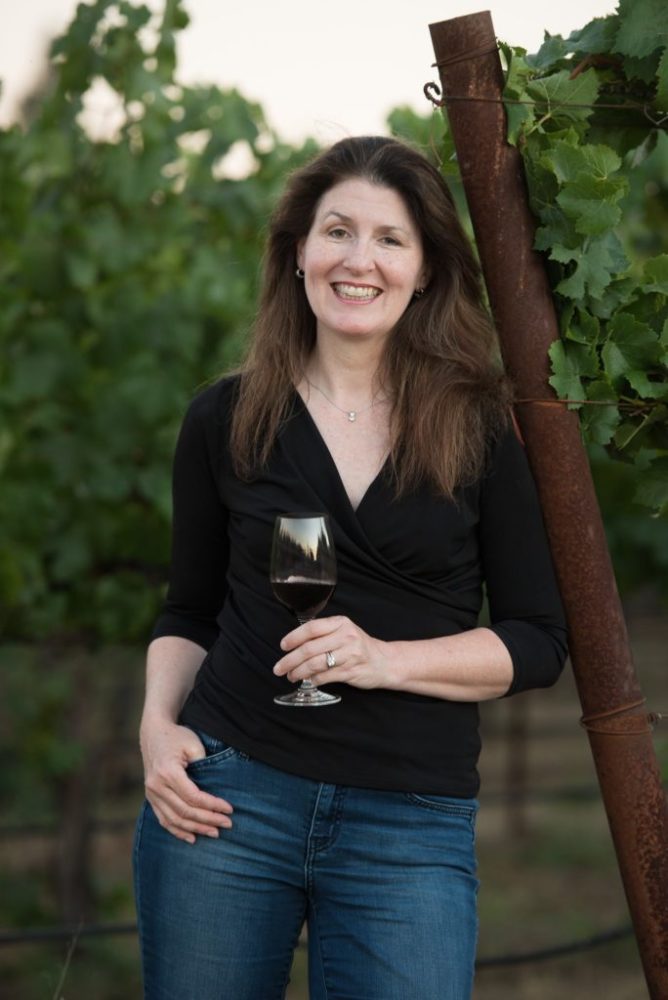Julie Lumgair is an exceptional winemaker and consultant located in Napa Valley and Sonoma County. We talked with her about how her family’s history in farming connected her to her current career in wine, her process for creating wine portfolios for her clients, and the best skills to have to excel as a Sommelier.
-
Have you always been interested in wine?
Absolutely! I grew up a fifth-generation farmer in a dry county in East Tennessee but my family encouraged global travel and an appreciation of international cultures and history. Historically, great winemaking was built on deep farming knowledge and diligent practices. That really connected my past experiences and future dreams.
-
What was the first moment you knew you wanted to pursue a career in the wine industry?
My college mentor was a collector of European and early Oregon / California wines who taught fine wine appreciation classes. I helped with his classes and was hooked! It inspired me to start collecting a global cellar in my 20’s. Multiple experiences I had while collecting spurred me to take the next step professionally in my 30’s and make winemaking my second career. Years later, I helped my mentor auction his collection at Bonham’s & Butterfields.

-
What advice would you give to someone interested in learning more about / trying more wine but doesn’t know where to start?
Three things really helped me get started. First, comparatively taste multiple wines with a common thread, especially with a wine educator, in better wine shops, group wine events, or visiting key regions. Second, reading more about regions, varietals, etc. you enjoy. Third, learning how to taste (the real sensory science) and keeping notes. Also, believe in your own palate then try to understand it in context.
p.s. Don’t underestimate the importance of spitting when tasting so your palate and sensory memory are sharp.
-
What is your process when it comes to consulting for different wineries and helping them to create a wine portfolio?
My consulting winemaking process in Napa Valley and Sonoma County is tailored to help owners achieve their individual style and process goals in luxury and ultra-premium tiers, with a strong direct to consumer (DTC) and higher tier on premise portfolio.
Authenticity is key for this tier. I roll up my sleeves and invest years in each vintage we finally bottle, field to table. That hands-on work connects me to the unique vineyard sources, the wine styles I’m working to express each vintage and the specific details and winemaking decisions made in the vineyard and cellar.
Depending on each client’s scope, it can cover lots of things. Vineyard sourcing, grape growing, cellar production, marketing support, market visits, VIP cellar appointments, industry association representation and more. Sharing each portfolio with wine lovers and trade when they taste deeply connects us. Luxury buyers value access, details and artisanal skill.
I spend a lot of time working on sourcing, style possibilities, process control and communication to owners, their teams and grape growers. It’s a rewarding creative
challenge each time satisfying clients’ goals for their wine.
-
In addition to consulting, you also make your own wine. What is the most rewarding part of making your own wine?
Both consulting and making my own wines are very rewarding. I take the same approach and care with both. I also freely share my connections with my current winery clients. It’s a virtuous circle. The only difference is the last level of absolute creative winemaking freedom to change a portfolio based on what the vintage provides in the field.
-
What is something you wish more people knew about your job?
Hmmm… winemakers don’t hang about drinking wine all day? More seriously, to succeed in winemaking, it takes three foundation skills: farming, math and cleaning. It makes the rest much easier! To excel, you also need a fabulous palate, technical knowledge and a passion for your customers’ happiness. For consulting winemaking, having the heart of a servant and realizing business development will be a totally new hat to in addition to the actual winemaking helps
.
-
Over the course of your career, what is the most important lesson you’ve learned or piece of advice you’ve been given?
Growing up in a family business in a small town, I learned reputation is everything and your handshake is your word. That and the Golden Rule never go out of style. As a young wine collector, I learned that some wineries may take your business for granted or not pay attention too well. Feeling that way as a wine buyer deeply influenced my passion for personal VIP experiences and building lasting customer relationships once I was on the other side of the conversation.

